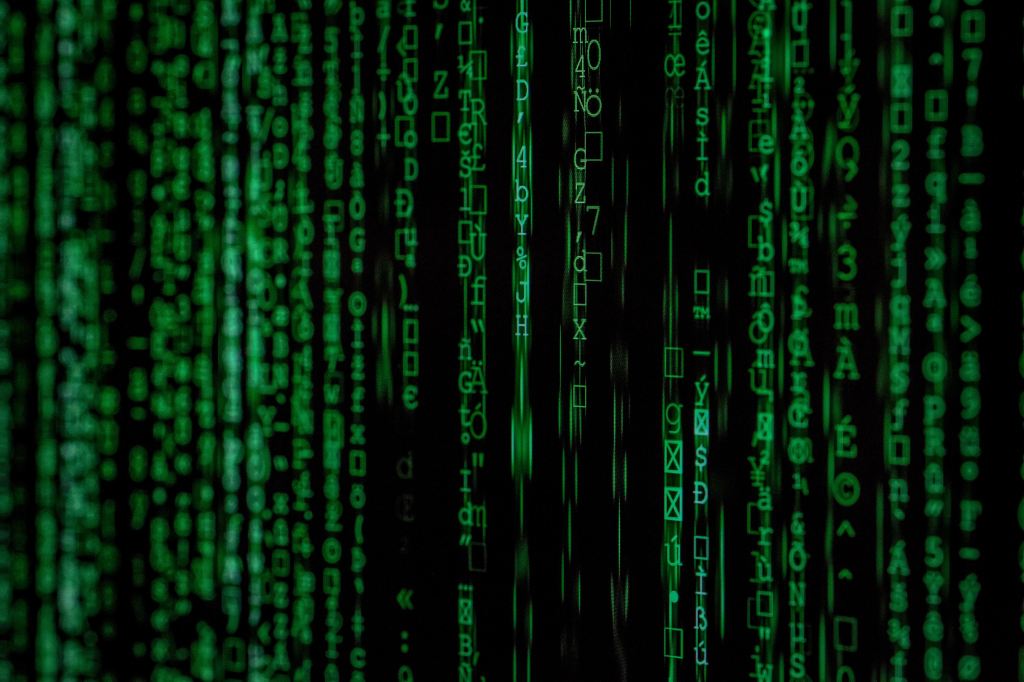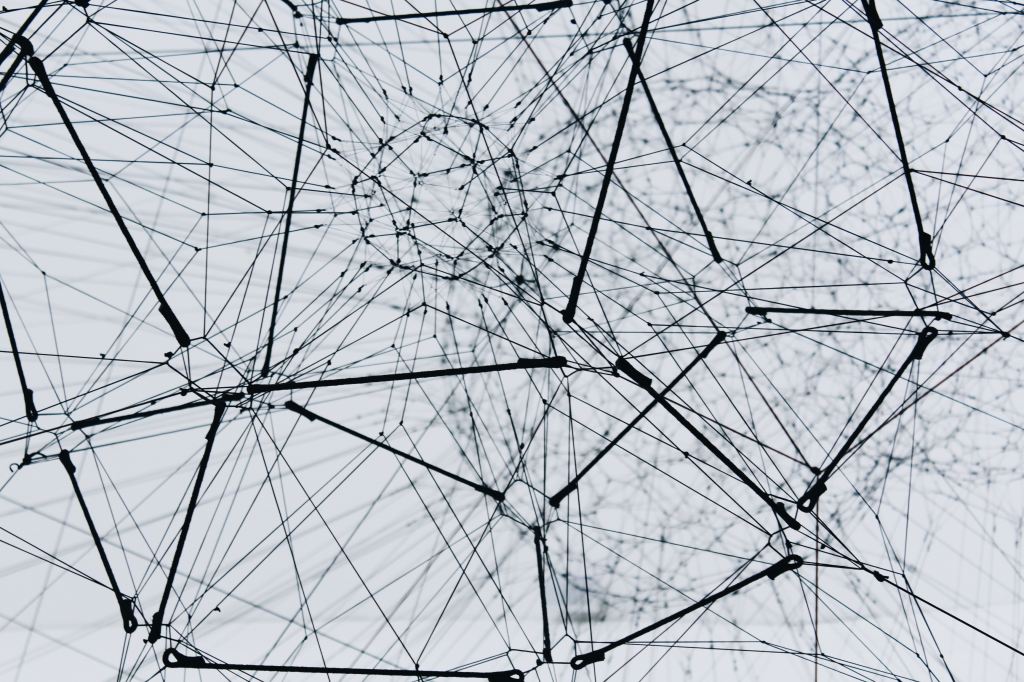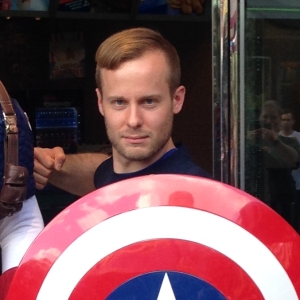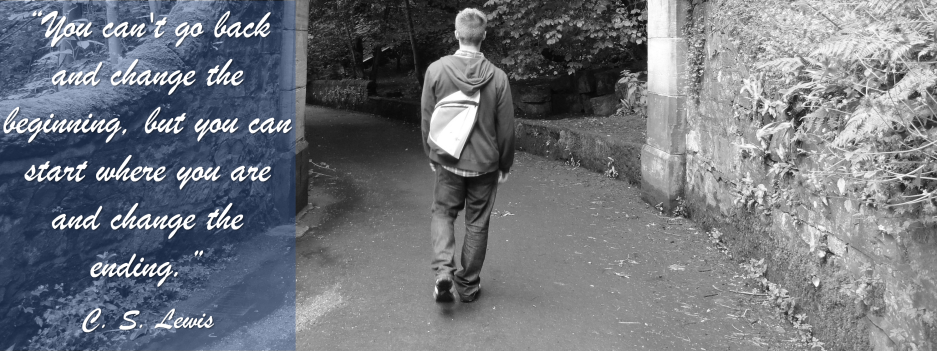Header image credit: me // Featured image credit: Jr Korpa (freely available via Unsplash)
It’s been in the back of my mind to write this post for a while, but I had been putting it off. But as I was walking out of the gym the other day thinking about my class choreography, I realized how relevant this topic is to so many things, so it’s time for it. I was thinking about the strength training class I teach and how much I love the section where we work back (deadlifts, rows, flyes, etc.). It has become my favorite section of that class, in large part because I always play a Journey song. Then I began to realize how that has helped me—no, caused me—to enjoy Journey more (not that I didn’t enjoy them before, but I’ve been getting into them much more since I started teaching this format), and also how I really started to enjoy the back section more once I began to make a big deal about making it my thing to always use a Journey song. In short, I had a profound yet mundane epiphany: did I choose to start liking that section of class (or Journey) more? Or was this increased fondness somehow destined by my previous actions and decisions?
But First, Semantics
Let me begin by clarifying two things. First, this is not a post about the theology of free will (as in the debate about free will vs. predestination), but rather the philosophy of it and, even more so, the science of it. Secondly, and this is my linguistic particularity coming out, this really isn’t a discussion of free will, per se, but rather of choice, and of whether or not that’s free. Oxford defines “will” as “[t]he faculty by which a person decides on and initiates action”. Or, as Merriam-Webster defines it, will is “a choice or determination of one having authority or power” (emphasis added). By this definition, no human being has free will. If we did, I could will there to be a puppy on top of my keyboard as I’m typing this. But, alas, no cute canine has corporealized on my computer. I lack the authority and power to make happen all that which I freely wish to happen. Yet there are certain things I do have the authority and power to will to happen. And even for those things where I don’t have authority or power, I am still freely able to choose and wish.
Or am I?
Repetition, Repetition, Repetition
Consider your favorite color. (In the spirit of sharing, mine’s blue.) You probably own lots of things in that color. (Yep—just look at my closet.) That means you likely see that color a lot. And that’s probably going to lead to your liking it even more. Psychologists have termed this phenomenon, whereby we come to have greater fondness for a stimulus the more we are exposed to it, the mere exposure effect. (Example: when Sugarland’s “Stuck Like Glue” first came out, I didn’t care for it too much. But then it kept being played on the radio. And you know what? It grew on me. And now it’s stuck on me. Like glue. Yep. I went there. Not sorry.) Growing fonder of repeated stimuli is nothing too radical. It actually makes for a rather nice design feature of the human brain. I mean, can you imagine if we began to increasingly hate things the more we saw them? That could make life quite unpleasant.
But here’s where it gets interesting: how does this increased fondness for repeatedly perceived (or already preferred) stimuli affect future decisions? What happens when you make a major decision, like buying a car? Are your pre-existing color preferences going to come into play? Hopefully you’re considering other, more functional features, but perhaps the deciding factor is that car x happens to come in your favorite color, while car y does not, which sways you towards buying car x. So, tell me, what made the decision? Was it you? Or was it the fact that you had a favorite color, which may only be your favorite color because it was the one you were exposed to most in those formative, choosing-a-favorite-of-everything years? And how do you think that decision is going to reinforce your predilection for that color and so affect future decisions?

Image credit: Tim Mossholder (freely available via Unsplash)
My Mind Made Me Do It
Enter cognitive dissonance, one of my favorite topics in psychology. In the now-classic 1959 study by Leon Festinger and James Carlsmith, participants were asked to complete a really (and I mean really) dull task for 30 minutes. And then another equally dull task for another 30 minutes. This was intentional, such that participants would undoubtedly have a negative opinion of the tasks. This was all under the guise of being measured for performance, mind you. Then, under a further pretense, the subjects were asked to tell the next “subject” (actually someone in on the experiment) that it was a really interesting and enjoyable task. For the critical manipulation, they were paid either $1 or $20 to talk up the experiment to this next “subject”. Finally, participants were asked to rate the tasks. The subjects who were paid less money actually rated the task as more enjoyable and more scientifically important and said they’d be more likely to participate in it again in the future.
What? Shouldn’t the people paid the higher amount have a more positive experience of the task? After all, they got more out of it ($19 more, to be exact). But, that’s exactly why they didn’t end up retrospectively having found it more enjoyable.
So what’s really going on here? To start, we need to understand cognitive dissonance. Cognitive dissonance is an unpleasant emotional state caused by some sort of internal conflict. And because it’s so unpleasant, we do what we can to eliminate it. In the case of the Festinger and Carlsmith experiment, the conflict was between the participants’ perceptions of the task (i.e., that it was terrible) and what they said about it (i.e., that it was fantastic). They couldn’t change what they said about the task, because that was in the past. They could, however, change their perceptions of the task, thereby reducing the dissonance between action and perception. But then there was also the monetary compensation, an external factor that could absorb some of the dissonance. Presumably, the individuals paid $20 viewed this payment as sufficient justification for their having told the lie. This justification then absorbed the dissonance: they no longer had to balance having hated the task and having said they enjoyed it; instead, they could nicely balance having hated the task and having been paid to say they liked the task. For the $1 condition, however, the small sum was hardly enough to justify their having told such an obvious falsity, so the only factor left to absorb the dissonance was how they perceived the task. So, as a result, in order to reduce the dissonance, they unconsciously changed their opinions of the task to be more positive and to match what they said.
Thus, while the mere exposure effect explains how our environments and experiences can come to shape our preferences, cognitive dissonance, I believe, explains a lot in terms of how our actions come back around to influence our preferences. Returning to the hypothetical car example, your buying the car of your favorite color would probably make you like that color even more, because, hey, you wouldn’t spend that much money on something you didn’t like a lot, right? I’m quite convinced that those same dissonance processes account for how I came to have greater fondness for Journey and for the back section of my class. The more I made a big deal in class about how much I enjoy those moves and how much I enjoy Journey, the more things I said (which can’t be changed), so my preferences changed (for the better, I might add) to match what I said and to reduce the dissonance, small though it may have been (I mean, it’s not like I didn’t already like Journey or deadlifts). And, of course, the mere exposure effect has also certainly contributed.
Finite, not Free
I hope by now you can see how our preferences can be shaped—one could even go so far as to say that they’re determined—innocuously and subconsciously not just by our environment, but even by our own actions. This becomes a strong argument against there being free choice. Yes, there is choice, but that choice is arguably not free, at least not as “free” is defined by Merriam-Webster: “not obstructed, restricted, or impeded”. Our choices are, as we’ve seen, greatly affected by our environment and our personal histories, sometimes without our awareness. In our hypothetical car example, while not a complete obstruction, your potential of choosing car y is arguably impeded by that fact that you prefer the other car’s color, making you less likely to choose car y. (Also, there’s the fact that your choice is limited by the cars available to you. And in that sense, almost all of our choices will never be free, because we have a finite—that is, restricted, to use one of Mirriam-Webster’s key words—number of options from which to choose.) And what about the subjects of the Festinger and Carlsmith study? They were “free” to choose ratings as they seemed fit, only how they felt about the experiment had been previously modified by their experience with it, by what they said about it, and by the amount of payment they received. That’s an awful lot of constraints on something often considered to be free.

Image credit: Markus Spiske (freely available via Unsplash)
Okay, but, finiteness of options notwithstanding (because that’s hardly a fair point, given our finite existence), surely at least some of our actions and decisions are still determined by our conscious selves. I can understand how decisions made from longstanding preferences (such as the car example with a favorite color) or strong emotional factors (such as those made in response to dissonance) are largely determined unconsciously by our environments and/or internal states. But surely for more consciously involved decisions, or for decisions where preferences and dissonance don’t come into play—or at least for random decisions, for Pete’s sake—we still have the power of choice…right…?
Predetermined Randomness
Well, I hate to burst your bubble, but, not necessarily. According to fairly recent neuroscience research, and as shown and discussed wonderfully in this video (watch from 1:11 to 4:39), up to 6 or 7 seconds before we make a “random” decision, fMRI scanners can tell what that decision will be. In other words, our decision seems to be predeterminedly encoded in our brain activity several seconds before we come to make the decision. That’s a pretty hard blow to free choice. But, as mentioned in this video, this doesn’t necessarily mean that we are deterministically swept along in life without getting to make decisions for ourselves. Instead, our experiences, emotions, and environments affect our brains in ways that determine how this activity and these decisions will unfold. So perhaps the better way to look at this isn’t to say that our choices aren’t actually choices, but that what appears to be random is in fact determined by other factors. Moreover, since our brains (and their activity) are a product of our experiences and preferences, this pre-choice, decision-predicting (or, should I call it decision-making?) activity is unlikely to do something contrary to what we want. It’s just that our conscious awareness (which is arguably just as much a product of our brain activity as are these pre-made decisions) is a little late to the party, making us aware of the decision only after it has been made and the underlying neural activity has taken place.
This likely owes to the nature of the information flow in our brains. Our left cerebral hemisphere is largely the seat of our linguistic abilities, and, as such, tends to be home to our linear stream of consciousness. (Jill Bolte Taylor has an excellent TED Talk on the differences between the left brain’s linear consciousness and the right brain’s more fluid consciousness.) But in order to reach the parts of the cerebral cortex that subserve more conscious processes (e.g., attentional processes in the parietal lobe, language processes in the frontal and temporal lobes), information must first take time to pass through “lower” parts of the brain. This is a great design, because this ensures that information is refined and well-processed by the time it gets to the parts of our brains that make decisions and handle consciousness; however, the downside is that it means that awareness can come late in the game.
Consciousness as Confabulation
But sometimes, with that refinement, information is lost, meaning that our conscious self is at a loss as to how a decision was reached. So, instead, it spins a tale that lets us still believe we are in control. Our linguistic, linear left hemisphere is excellent at this, as shown in this fascinating video of a split-brain patient. In particular, there’s a powerful moment from 5:39 – 7:00 (but start at 2:54 if you want to catch a little more of the explanation of the setup; but, really, the whole video is worth watching) where the man points to an image corresponding to a word shown to only his right brain. His left hemisphere, unaware of the real reason why this was the image he pointed to (i.e., that his right brain saw it), makes up a story as to why. Hence why the left hemisphere has come to be called “the interpreter”, because it interprets and makes sense of the world in a way that fits a cohesive and linear—albeit, at times, fictitious—narrative.
Concluding Thoughts
This is all rather compelling evidence against the existence of free choice. Yet, despite all this, I’m a firm believer that we have the power to choose. I mean, I could choose to just stop typing this blog altogether right now. But I’d hate to leave you hanging, so I won’t. (Though you could also say that my Type A personality determines that I not leave things unfinished.) It’s just so hard to shake that idea that we can choose, when so much of our experience with the world seems to tell us that we can. But as I said earlier, it isn’t so much that choice isn’t choice, but that freedom is finite and that random is predetermined; everything is connected. So while we still may be making intentional, volitional choices, those choices are largely influenced by our mental states and previous experiences, and, as such, arguably aren’t free in the fullest extent of what that word can mean.

Image credit: Alina Grubnyak (freely available via Unsplash)
I also think it comes down to knowledge. And knowledge is power. When we’re not aware of our unconscious drives and of how powerful and far-reaching they are, we allow ourselves to be determined by them—without even knowing how. But, knowing what we know about dissonance and how our actions and environments affect—or, arguably, sometimes determine—our feelings and decisions, we could make a more concerted attempt to override these unconscious drives, maybe even with intent to change them (e.g., choosing the car of your non-favorite color in order to make yourself like that color more through the power of dissonance). That is, simply by being aware of the power of the unconscious and how it affects our preferences, decisions, and actions, perhaps we are armed, so to speak, against its potent predeterminism. Knowledge frees us, as it were. (At least to a degree, because, again, can we be completely free in a finite world?) It’s sort of a self-fulfilling prophecy—but one with a way out: if we aren’t aware of the predetermination, we allow our actions to be predetermined; but simply by being aware of the situation, our choices, even though we may choose what otherwise would have been predetermined, become more an act of the will, thereby breaking the cycle of predetermination.
Then again, perhaps that knowledge simply predetermined that that would be our response, thereby giving us nothing more than a predetermined life of actions with only a pathetic illusion of choice. But a sense of control is so important for a great many things, so, real or fantasy, I’ll take it.
Yours truly,
D. R. Meriwether, Ph.D.
Renaissance Man and Abundant Life Liver


Three quick thoughts ( those are the only kind I have). Easy come… Easy go…
1) Dissonance can be uncomfortable or beautiful ( as in music). At first it sounds wrong, but if we embrace the dissonance we can open ourselves to growth.
2) We all seek out information, people, experiences that confirm our own bias. Therein lies the danger. If we live life in the confirmation bias bubble, how do we grow and learn?
3) Maybe your new love of Journey resulted from the power of positive association.
You like exercise. You play Journey when working out. Now you like Journey because it is associated with something you love.
Freddy Mercury was also a Renaissance man. Not only did he write Bohemian Rhapsody, but he sang all the parts in the a cappella introduction!
LikeLike
Thanks for your thoughts, Joni!
1) I totally agree! (Though I might not have 15 years ago; I used to struggle with appreciating dissonance in music, unresolved plots, and the like; but I’ve come to appreciate it.) However, I’m not sure there’s much we can do about this kind of cognitive dissonance, with its being so unconscious. It’s hard to appreciate something that we don’t know is going on. But, maybe by knowing more about the phenomenon, we can come to notice it more and learn to allow that dissonance to resonate beautifully when appropriate.
2) So true–scarily so. That’s why it’s so important to be open to at least hearing–respectfully–other ideas and perspectives.
3) Positive association could be part of it, and certainly could account for the initial surge in liking of one or another, but I don’t know that it accounts for the continually increasing preference of both.
I did not know that! I mean, I knew he was an amazing singer, but I didn’t know he did all those parts. That’s cool! Thanks for sharing!
LikeLike